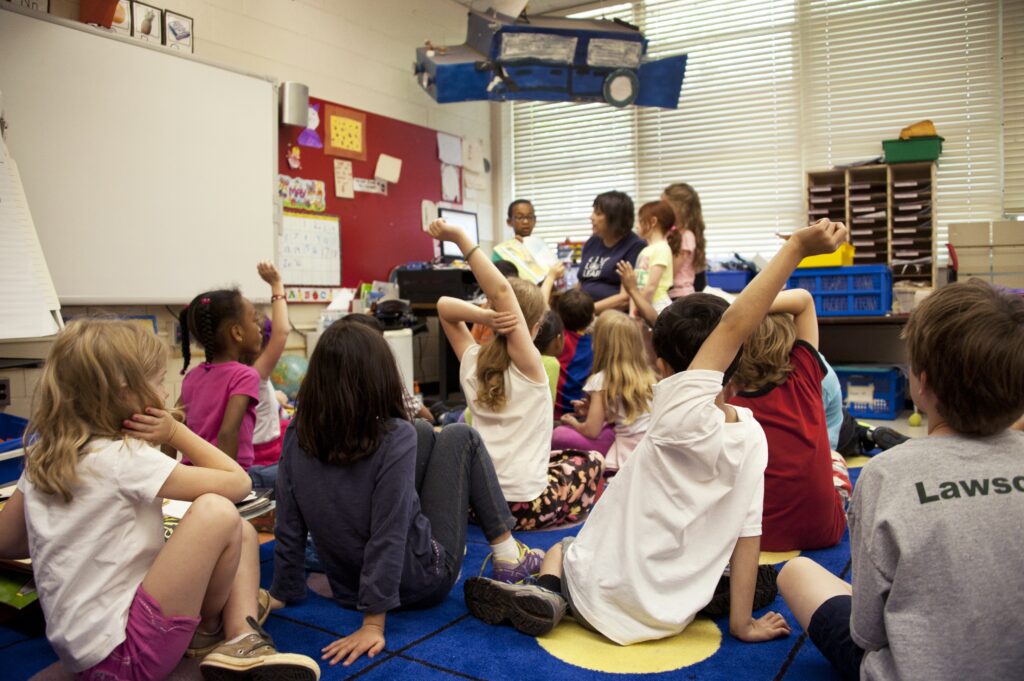
Listen to the story here:
Students in Toronto Metropolitan University’s (TMU) School of Early Childhood Studies (ECS) say they feel their program prepares them for their future careers, even with dire shortages in early childhood education (ECE) staff in Ontario. TMU ECS students say they are worried about entering an understaffed profession with overworked and burned out members.
Ontario pledged to participate in the new national $10-a-day program, which will add 86,000 new childcare spots in the province and is projected to be fully implemented in March 2026. This means that more parents will be able to afford to enrol their children in daycare — and, in turn, create a growing demand for ECE staff.
Ontario may be short 8,500 ECE employees to help compensate for those new childcare spots, according to official government slide decks obtained by The Canadian Press. Without proper recruitment plans to train more ECEs, the slides suggest there won’t be enough workers to fill the new positions.
Maryn Whitney, a fourth-year ECS student and president of the ECS course union, says her professors warn students about burnout before they enter the field. “Although it’s nerve-wracking, we sign up knowing that,” she said.
Almost 40 per cent of childcare and education workers say they experience burnout at work, according to a 2021 study conducted by Mental Health Research Canada. The government slide deck also states the number of registered early childhood educators (RECE) in licensed child care has decreased by seven per cent between 2019 and 2021, adding to the strain.
“Because we are putting in such an emotional response to every single thing that happens in our day, that emotional outpouring also takes a toll on us.”
Matthew Seaborn
Matthew Seaborn is an RECE with the EarlyON Child and Family Centre at TMU who spends his days caring for both the children and parents. He teaches literacy and language skills and ensures they get enough physical activity. He also guides new parents through skills including proper nutrition, breastfeeding and sleeping regiments for their babies. Seaborn says his days are packed — he’s lucky if he gets one or two hours a week to plan activities and lessons for the kids.
“We are putting all of our energy into it and we absolutely do love what we are doing,” said Seaborn. “But because we are putting in such an emotional response to every single thing that happens in our day, that emotional outpouring also takes a toll on us.”
While ECS students say there isn’t a specific course to help develop strategies for handling stress and burnout, many of the professors make a personal effort to offer stress-relieving strategies.
“They’re really brutally honest with us,” said Shelby Stephenson, a fourth-year ECS student. “They set us up very well.”
Whitney says the hands-on experience ECS students receive is a key component in preparing them for the hectic work environment. Throughout their degree, they are assigned field placements in educational and childcare settings, with an internship in their final year.
“That variety of work really prepares you for different environments, situations and community members that you’re working with,” said Whitney.
While field work provides valuable hands-on experience, Whitney says most ECS placements are unpaid.
According to a 2022 report done in part by the Canadian Mental Health Association, financial security is one of the social determinants that directly contributes to the mental health and well-being of education workers.
To prepare students for the added stress of wage discrepancies in the workforce, Rachel Vickerson, the executive director of the Association of Early Childhood Educators Ontario, says universities should model decent work practices, including fair pay.
“I would like to see colleges and universities advocating for these placements to be paid opportunities for students,” she said. This would help students better advocate for themselves in the professional world, Vickerson added.
“Although it might be a little hard getting started into it, it’s really that passion for the kids and that commitment to wanting to teach kids and be there for them,” said Whitney. “I want to be able to make that difference.”
Managing Editor, On The Record, Winter 2023
This article may have been created with the use of AI tools such as
Managing Editor, On The Record, Winter 2023

